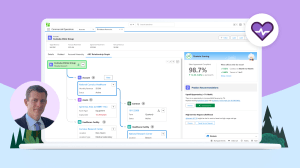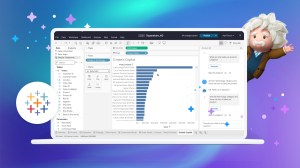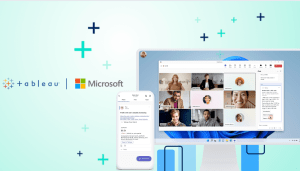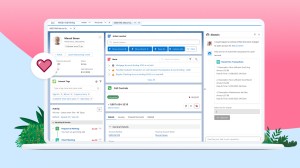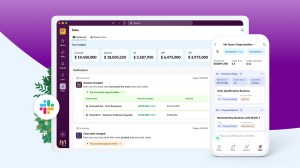Salesforce recently announced the launch of Life Sciences Cloud, intended to streamline patient and healthcare professional (HCP) engagement as well as clinical, medical and commercial operations with data, automation, and trusted AI.
As the company furthers its investments in the space, Salesforce recently welcomed back Frank Defesche as SVP and GM of Life Sciences Cloud. He returns to Salesforce from Veeva Systems, where he worked closely with life sciences organizations spanning early-stage biotechs to top global pharmaceuticals.
Over the past 15 years, Frank has served as an executive at Veeva Systems, most recently as the company’s SVP & GM of Vault CRM in North America and SVP of Global Services. Throughout his career, he has worked closely with life sciences organizations across the value chain–from clinical to commercial–to modernize engagement and operations through cloud technology.
In this interview, Defesche outlines areas of growth for the industry, the biggest challenges facing life sciences organizations today, and how CRM and generative AI will provide new opportunities for life sciences organizations to engage with customers.
Q. As a long-time player in the industry, how do you define life sciences?
This may sound like common sense, but I refer to it as “the science to help life.”
The focus of life sciences is to improve health by bringing innovative medicines, devices, and diagnostic advancements to patients. Examples include improving the quality of life with an implant that can help a patient to walk again, discovering a cure for a life-threatening disease or chronic condition, and creating surgical equipment that minimizes the invasiveness of a procedure and helps reduce recovery time for the patient. Life sciences has the capacity to truly elevate the quality of life for patients.
Q. From your perspective, where do the greatest growth opportunities lie in the life sciences industry?
The life sciences industry is facing unprecedented change fueled by the evolving needs of patients and HCPs, emerging industry trends and operating models, increased complexity of treatments, new data sets, and technology advancements spurred by generative AI across clinical, medical, and commercial functions.
Life sciences organizations need a way to connect all of their data to have a consistent, complete, and current view of their patients and HCPs, and to transform stakeholder engagement across areas like clinical participant recruitment and enrollment, AI-generated sales communication, patient and HCP self-service, and intelligent orchestration.
There is a shift in the industry from product centric to customer centric that requires life sciences organizations to evolve how they engage and support patients and HCPs. I believe Salesforce is uniquely positioned to help with our blend of data, innovation, automation and trusted AI.
Q: How does Salesforce help life sciences organizations leverage the treasure troves of data at their disposal in a trusted and secure way?
We have a flexible, configurable platform that enables customers across every industry to be more productive, efficient, and successful. The intersection of life sciences and CRM is more important than ever before because it allows life sciences organizations to better understand their customers, whether they are HCPs or patients, and helps facilitate more data-driven decision-making to improve both the products they use and enhance customer interactions. To this end, Salesforce’s new investments in data and trusted AI present exciting opportunities for the life sciences industry.
Data is the foundation of every customer transformation. With Salesforce Data Cloud, we’re moving customers from having islands of data to having a single source of truth for data — without the costly integration projects required with standalone data warehouses and data lakes.
For example, by using Data Cloud, life sciences organizations can more securely connect and activate medical, social, and behavioral patient and HCP data from different sources into a unified, real-time profile. This helps life sciences organizations identify potential patients or study risks, like adherence to therapies in clinical trials, and even create segments from that data, such as groups that could be suitable for a new clinical trial or care program.
Einstein, our AI technology, is already operating at tremendous scale, processing 1 trillion predictive and generative transactions every week for our customers. Embedded with our Einstein Trust Layer, customers get the benefit of generative AI without compromising their data security and privacy controls.
Both Data Cloud and Einstein will be key to creating better experiences for HCPs, patients, and researchers as we improve personalized engagement and personalized medicine.
Q. How has the arrival of generative AI changed the way life sciences companies are approaching their business?
It is changing every aspect of life sciences. To cite a specific example in the context of participant recruitment and enrollment in clinical trials, the life sciences industry has often faced challenges, including geographic and demographic barriers for participants, as well as effective communication and education efforts throughout the clinical trial lifecycle. This is one area where I see a transformative opportunity with generative AI. AI can help identify and engage with prospective and current clinical trial candidates according to their preferences and location, working to accelerate clinical trials and help create a better overall experience for patients, helping to lower the likelihood of attrition and achieve better outcomes.
Einstein Copilot specifically will help drive productivity by assisting users within their flow of work, enabling them to ask questions in natural language, and receive relevant, compliant and trustworthy answers and summaries of content grounded in secure proprietary company data from Data Cloud.
For example, a pharmaceutical sales rep can prompt Einstein Copilot to generate a list of HCPs that have reduced the amount of prescriptions for a therapy in the last 90 days and automate the creation of a re-engagement campaign with an AI crafted customer journey.
Q. 88% of healthcare and life sciences organizations have not yet realized their digital transformation goals. What advice would you give to executives at these organizations?
Organizations should be applying AI responsibly to augment, automate, and increase compliance for better HCP and patient engagement. However, they must first break down silos between applications, data, and platforms to create a streamlined set of capabilities and insights to execute, whether they’re in a clinical or commercial environment.
Data is the driver behind AI. Data is the most precious currency, and there is more of it than ever before. Helping customers leverage their data is where Salesforce comes in: Our technology is built on a secure platform that brings together data with trusted AI and CRM capabilities. It helps life sciences organizations speed up drug and device development, enlist and retain patients across the clinical trial journey, and use trusted AI to deliver personalized experiences to customers.
We’re poised to revolutionize the industry by taking what we’ve already built for life sciences, adding new industry specific capabilities, and incorporating generative AI and sophisticated data analytics. I’m thrilled about re-joining Salesforce and excited for the new opportunities that lie ahead.
More information:
- Learn more about Salesforce Life Sciences Cloud
- Find out how Salesforce partners Accenture and Deloitte Digital will bring their implementation support and deep global industry expertise to Life Sciences Cloud
- See the launch of Life Sciences Cloud at Dreamforce ‘23
